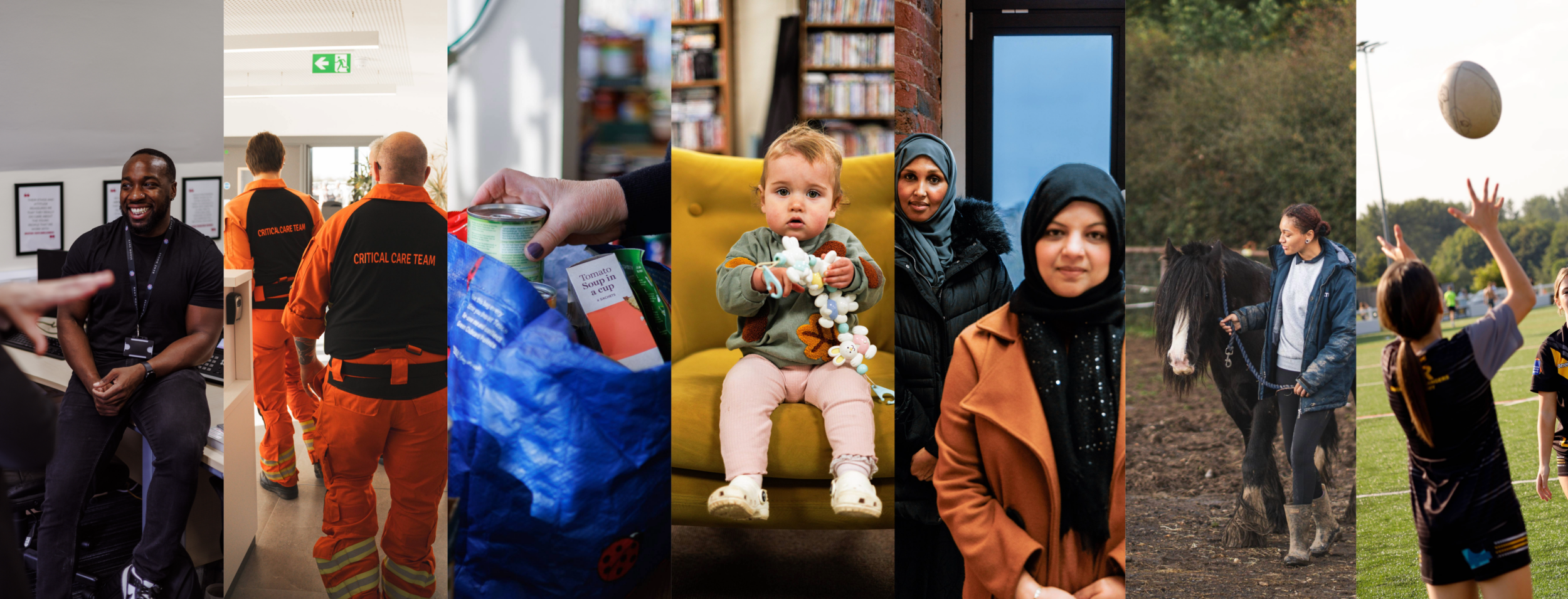
Navigating Change: Tony Armstrong’s Insights on Building Resilient Communities
In a thought-provoking discussion at our Navigating Change events, Tony Armstrong, CEO of Locality, shed light on the incredible work being done at the grassroots level.
In a rapidly changing world, community organisations play a critical role in supporting local communities, navigating constant challenges, and fostering positive change. In a thought-provoking discussion at our Navigating Change events, Tony Armstrong, CEO of Locality, shed light on the incredible work being done at the grassroots level. Let’s delve into Tony’s perspective on change, challenges, and the hope that sustains community organisations.
Empowering Local Communities
Tony began by introducing Locality, the national membership organisation in England that unites over 2,000 diverse community organisations with a common focus on their local areas. These organisations are driven by the belief that every community possesses incredible talents and assets, yet they often lack the necessary support and infrastructure to unlock their potential.
Perseverance Amidst Challenges
Tony highlights the resilience of community organisations in the face of numerous challenges. Over the past decade, these organisations have navigated a series of crises, leading to the coining of the term “perma crisis.” Despite these challenges, community organisations remain optimistic, underscoring their unwavering commitment to their local communities.
The New Normal: Adaptation and Resilience
With a rapidly changing landscape, organisations now consider adapting to change as “business as usual.” As external factors continually evolve, community organisations must develop strategies for managing change effectively. This adaptability is essential for survival and success in the current climate.
The cost-of-living crisis is a pressing issue that affects community organisations and their communities. Funding constraints have led many organisations to open food banks and provide warm spaces, reflecting the immediate need for their services. Tony emphasises that organisations aim for long-term positive impacts while addressing these basic needs.
The Sector’s Critical Role
Community organisations, including charities, social enterprises, and local community groups, form a critical sector that supports people in their local communities. Their role is essential in ensuring that individuals have access to necessities like food and warmth.
Collaboration and Advocacy
Tony calls for collaboration between community organisations, politicians, decision-makers, and funders to transition from reactive responses to a proactive, preventative focus. By working together, they can create a brighter, more sustainable future.
Changing the Weather: A Vision for the Future
Tony advocates changes at the national and macro level to create a more favourable operating environment for community organisations. He emphasises the benefits of localism, sustainable food systems, and local economic development. Additionally, he calls for a re-evaluation of public service delivery, moving away from outsourcing and toward a more personalised, relationship-based approach.
Food Literacy and Sustainable Food Systems
One significant aspect that Tony emphasised during his discussion was the importance of transitioning from relying on food banks to developing sustainable food systems. While food banks play a vital role in addressing immediate needs, the ultimate goal should be to create localised and sustainable solutions. Some of Locality’s members have recognised this need and are actively investing in community gardening and growing schemes. These initiatives aim to empower communities to produce their own food, making it more accessible and reducing reliance on food banks.
One notable partnership that Tony mentioned is with organisations like Incredible Edible. These initiatives provide free food to the local community and focus on promoting food literacy. Food pantries, another critical component, are not solely about distributing surplus food but also about educating communities on healthy and sustainable food practices.
Local Energy Generation and Resilience
Another area of focus is local energy generation. While the government often subsidises large fossil fuel companies to lower energy bills, Tony suggests a shift towards supporting community-owned energy projects. In places like Scotland, they have more favourable feed-in tariffs for community-owned energy generation, which has proven to be economically viable and environmentally sustainable. In England, Locality’s ambitious members have successfully completed projects like England’s tallest onshore wind turbine, providing cheaper and carbon-neutral electricity to local communities while generating income to support their organisations.
Prevention over Reaction
The core of Tony’s message lies in the need for a preventive approach. Rather than constantly reacting to crises, we should focus on building systems and partnerships that can prevent these crises in the first place. This means investing in local, sustainable solutions and strengthening local organisations’ capacities to address their communities’ needs effectively.
Community Ownership and Collaboration
Community ownership is a pivotal aspect of building resilience. Tony highlights the importance of working with local councils on asset transfers, enabling communities to take control of facilities and services. Locality offers guidance and support to organisations looking to engage in the community ownership process. They advocate for the community ownership fund, which can provide the necessary funding for communities to take over assets and manage them for the benefit of the local community.
While Tony acknowledges the potential benefits of partnerships between charities and commercial organisations, he emphasises the importance of ensuring that these partnerships are not exploitative and genuinely benefit the community.
In Conclusion
The key takeaway from Tony’s insights is the need for a proactive and preventive approach to address community challenges. By building sustainable food systems, investing in local energy generation, fostering collaboration, and promoting community ownership, local organisations can create resilient and thriving communities. Locality provides resources and support to help organisations on this journey.
To join Locality and access their resources, visit their website at locality.org.uk.
For more information our Charity Bank and our loans and support for community organisations, visit the Charity Bank website, or explore our additional “Navigating Change” blogs and resources.
About Charity Bank
Charity Bank is the loans and savings bank owned by and committed to supporting the social sector. Since 2002, we have used our savers’ money to make more than 1380 loans totalling over £580m to housing, education, social care, community and other social purpose organisations.
Nothing in this article constitutes an invitation to engage in investment activity nor is it advice or a recommendation and professional advice should be taken before any course of action is pursued.


